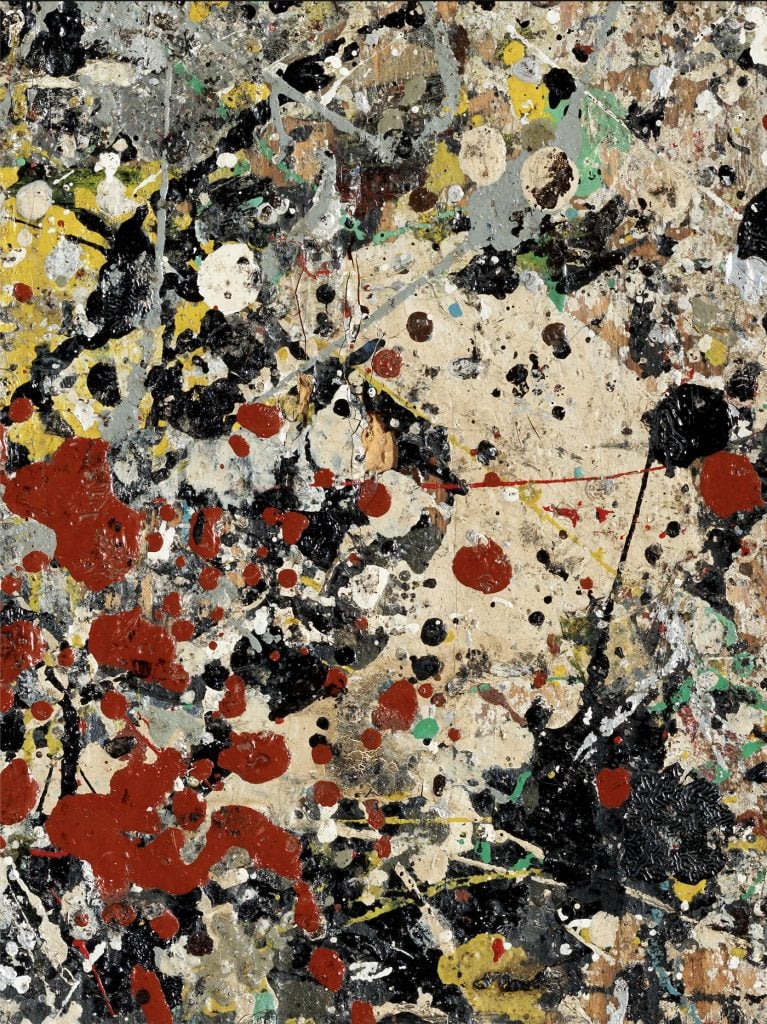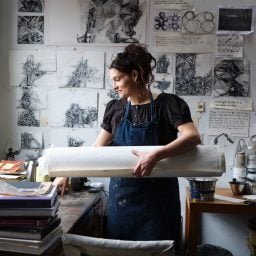Jackson Pollock was never one for the easel. Instead, at his studio in East Hampton, New York, the artist tacked canvases on the wooden floor, onto which he dripped and splattered household paint to create his wild and abstract topographies, allowing gesture and gravity to do their work. “On the floor, I am more at ease,” he once said. “I feel nearer, more part of the painting.”
Pollock’s paint-streaked floor was tiled over in 1953, bookending his most fertile period, and inadvertently preserving the swirls, flecks, and strokes that spilled over his canvases—residues of his artistic activity. When the Masonite flooring was pried up in 1987, even his cigarette butts were found caked into the paint.
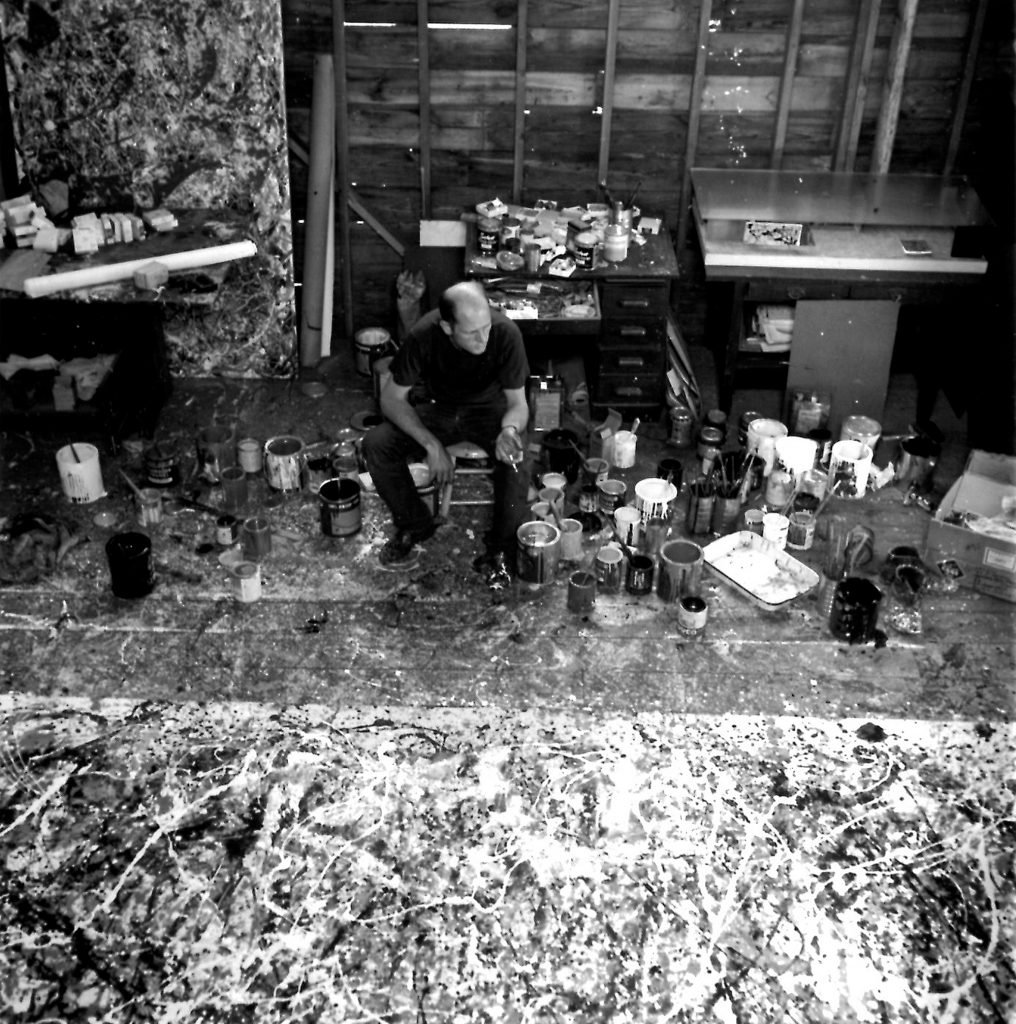
Jackson Pollock in his East Hampton, New York studio. Photo: Hans Namuth. Courtesy of Pollock-Krasner House and Study Center.
The surface has since been preserved by the Jackson Pollock Studio, part of the Pollock-Krasner House and Study Center.
“The floor is our major artifact,” Helen A. Harrison, the organization’s director, told Artnet News. “But as it is part of the building, it can’t move around. It can’t go on loan to other institutions. It is where it is.”
But this will not be the case for much longer: On July 19, in partnership with Web3 platform Iconic, the Jackson Pollock Studio will be bringing its key artifact to the blockchain with the launch of an NFT collection centered on the artist’s prismatically layered studio floor.
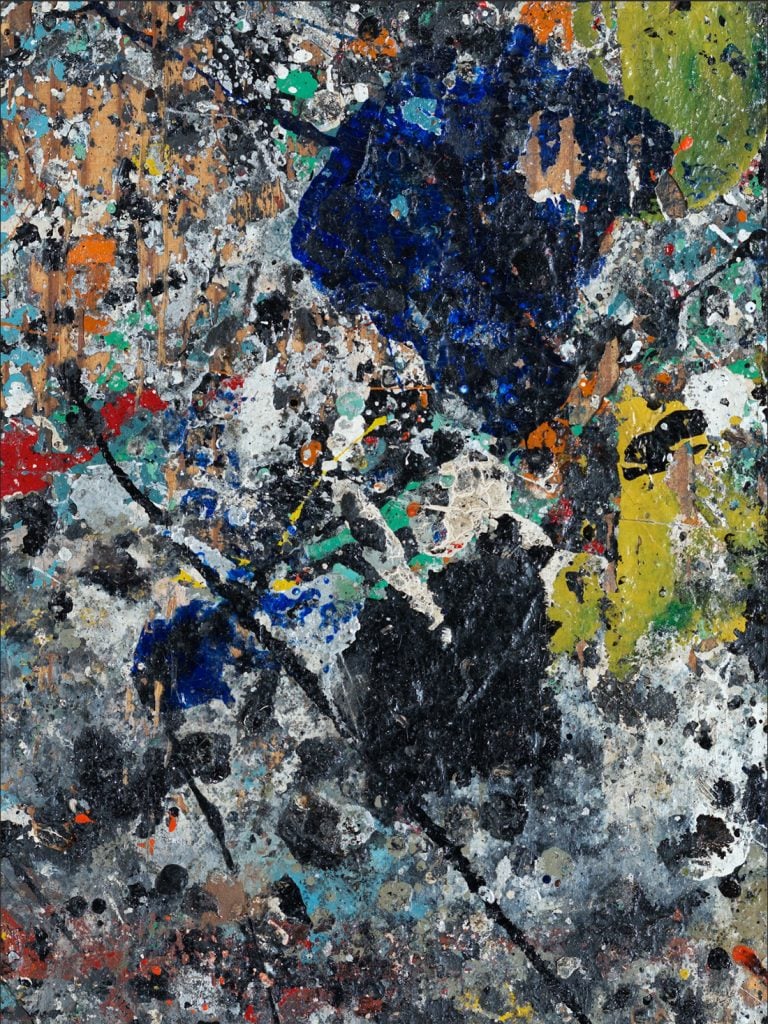
Blue Poles from “Beyond The Edge,” Jackson Pollock Studio Collection (2023). Courtesy of Iconic.
Titled “Beyond the Edge,” the series offers four perspectives of the floor, each bearing identifying marks and colors of the Abstract Expressionist’s noted works such as Number 3, 1950 (1950), Blue Poles: Number 11, 1952 (1952), and Convergence (1952).
Captured in high resolution, these perspectives are each available in editions of 100, with collectors receiving both a NFT and a hand-numbered museum-quality print. Each of these phygital sets are priced at .8 ETH or $1,500.
Harrison herself is astounded by the detail captured by these perspectives, which were shot with a specialized camera rigged up to a dolly in the studio. A.I. was then used to stitch the images together.
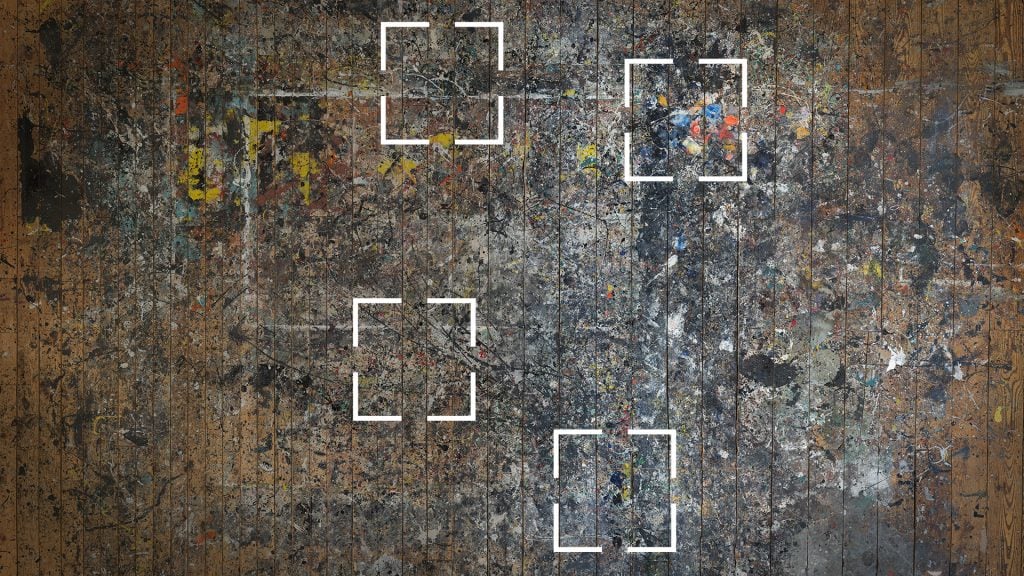
Locations on Pollock’s studio floor where perspectives were photographed. Courtesy of Iconic and the Jackson Pollock Studio.
“They’re quite engaging in and of themselves,” she said of the perspectives. “You can see the floor in a way that you cannot do with the naked eye—you can just drill down to a hair embedded in the paint.”
The Pollock Studio’s first on-chain adventure will also feature a Web3 puzzle titled The Pollock Enigma (a “brain twister,” per Harrison), which awards prints and NFTs to the first individual who successfully decodes it. In August, the collection will expand to include Ordinals, similarly based on the studio floor, as well as other limited-edition artworks created by today’s digital artists.
The “Beyond the Edge” sale will directly benefit the Pollock-Krasner House and Study Center’s work in conserving and maintaining the studio floor. The late 1980s work to preserve the floor involved mostly cleaning it of tar paper residue and reinforcing it following a powderpost beetle infestation, but conservation efforts and assessments remain ongoing.
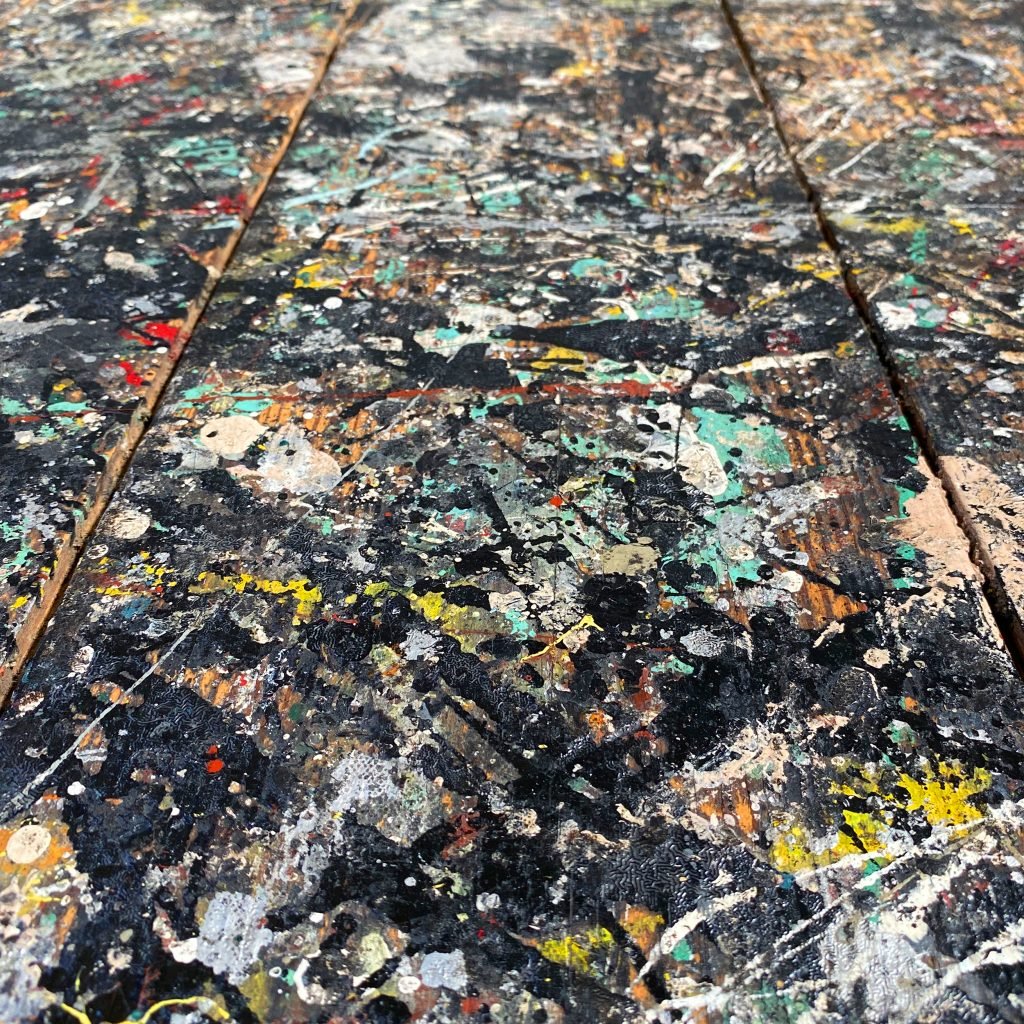
Jackson Pollock’s studio floor. Courtesy of Iconic and the Jackson Pollock Studio.
For Harrison, such an outing, perhaps more significantly, brings a moving document of Pollock’s process beyond its four walls.
“It reaches out to people who can’t come here and actually see the floor for themselves—gives them an insight into the importance of it as an artifact,” she said. “We know where certain paintings were lying when Pollock was working on them because of the colors and the gestures that are in evidence on the floor. This is a way of relating the artifact to the art.”
More Trending Stories:
What Opulence Lay Behind Marie Antoinette’s Secret Bedroom Door? The Palace of Versailles Has Just Reopened the Queen’s Hidden Chambers
An Ornate Viking-Era Relic Unearthed by a Metal Detectorist in the U.K. Could Fetch More Than $30,000 at Auction
A Rediscovered Portrait of Katherine Parr, Henry VIII’s Sixth Wife, Fetches Four Times Its High Estimate at Sotheby’s
Art Industry News: More Museums Distance Themselves From David Adjaye After Allegations + Other Stories
For Their First U.S. Museum Show, Artist Wynnie Mynerva Has Reimagined the Creation Myth as an Act of Rebellion Against the Patriarchy
An Israeli First-Grader Stumbled on a 3,500-Year-Old Egyptian Amulet on a School Trip
Why Hasn’t Atlanta’s Art Scene Flourished Like Other Cities in the South? A Tragic Tale May Hold the Answer
